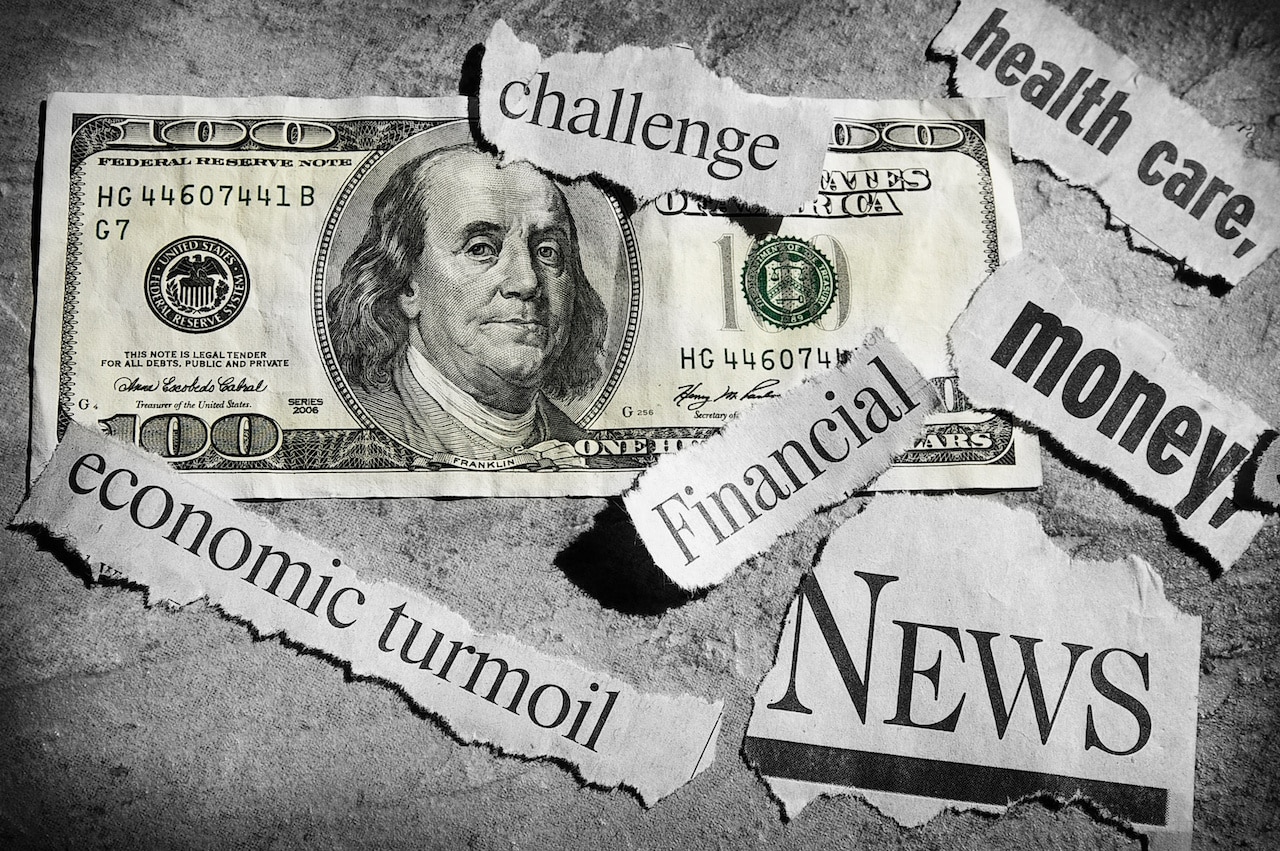Credit Sesame on why you should work on your credit score to counter economic threats.
Even as the economy bounces back from the pandemic, new challenges have arisen. Consumers try to make ends meet while prices rise faster than they have for 40 years. A possible recession looms. Increasing interest rates make borrowing more expensive.
Each of those challenges make this a crucial time to work on your credit score. Raising your credit score can soften the impact of inflation, recession and rising interest rates. Strong credit helps you survive these economic threats. Here’s what you can do to improve your credit
Have credit available to keep up with inflation
Credit can give you the financial flexibility to cope with unexpected price increases. If high expenses exceed your budget, having credit available can help you avoid getting caught short.
Think of credit as a back-up. It is useful to have to cover unexpectedly high expenses, but should be used only if you can adjust your budget to make repayments. Ideally you should pay off your balance in full as soon as possible. At the very least, try to get it down below 50% of your credit limit. Credit is short-term fix to help you cover expenses when prices rise faster than you can adjust your budget. However, it is unwise to rely only on credit to deal with ever-increasing prices. If you keep borrowing or using more credit, you may hit your credit limit and have nowhere else to go. It is vital to adjust your budget so that you do not create a debt spiral from which you cannot escape.
Keeping your credit balance and utilization in check helps you maintain a good credit score. It should also limit the amount of interest you pay. On top of that, it helps you stay ready to deal with inflation by keeping some credit in reserve for emergencies.
Keep your credit ready for a recession
Keeping your credit balance at a low percentage of your credit limit can help you maintain a good credit score. Of course, making your payments on time is the most important factor in credit score.
This could be especially important if the economy lapses into a recession. In a weak economy, lenders are more cautious about extending credit. This should not be a problem if you have a strong credit record. If you have more of a borderline credit history though, it may become harder to borrow during a recession.
Not only is it harder to get new credit, when conditions are bad, credit card companies sometimes cut existing credit limits to reduce their risk. The weaker your credit score, the more likely this is to happen.
The U.S. economy shrank slightly in the first half of 2022 after adjusting for inflation. Credit card default rates are up this year. The economy is not officially in a recession yet, but there are red flags that make credit card issuers more cautious.
Practicing responsible credit habits helps you hold onto the flexibility to continue using credit if the economy worsens. This might also be a good time to sign up for credit monitoring, so you can keep a close eye on your credit score and history.
Improve your credit score to ride out economic threats
Interest rates and inflation are linked economic threats and interest rates have risen sharply in 2022 in response to inflation. This may continue if inflation doesn’t stabilize or reduce.
Credit card companies and other lenders charge higher interest rates to riskier customers. The difference between the lowest interest rates they give to high-credit score customers and the highest rates they charge people with lower scores is known as a credit spread.
Credit spreads can be quite large. If you look closely at credit card ads, they routinely list differences of around 10% between their best interest rate and their highest. Rates on personal loans, mortgages and car loans also vary a great deal depending on your credit score.
If you improve you score, you can start to earn your way towards the lower rate end of these credit spreads. So, while everybody else is seeing their interest rates rise, you might actually be able to lower yours.
4 Ways to improve your credit record
High inflation, rising interest rates and the threat of a recession make a good credit record especially valuable. What can you can do to improve your credit record?
1. Stick to a strict payment schedule
Your payment history is the biggest single factor used in determining your credit score. It helps to use credit regularly, as long as you then pay your bills on time, every time. Make sure you have a good reminder system so that you never miss a payment.
2. Keep credit use below half of your credit limit
Credit utilization measures the amount of your available credit that you’re using. Lenders don’t like to see credit limits maxed out. Try to keep your credit use to below half of your available credit lines. A moderate level of credit utilization helps your credit score while keeping some credit in reserve for when you need it most.
3. Use loans rather than credit cards for long-term debt
One of the most common financial mistakes consumers make is carrying credit card debt month after month. Credit cards should be used for short-term convenience, but paid off as soon as possible.
If you need to borrow money for a longer period, loans typically offer lower interest rates than credit cards. Also, having a mix of loans and credit card accounts is considered a positive factor in your credit score.
4. Check your credit report
If there’s a mistake or outdated information on your credit report, getting it cleared up can give your credit score an instant boost. So, check reports from all three major credit bureaus (Equifax, Experian and TransUnion). Consider signing up for credit monitoring, so you can be alerted to changes that may affect your credit score.
The economy in 2022 poses challenges to consumers. Working on strengthening your credit record can put you in a better position to meet those challenges and weather the economic threats successfully.
You may also be interested in:
Disclaimer: This guide to buying a house and getting a mortgage is for informational purposes only and is not intended as a substitute for professional advice.




















